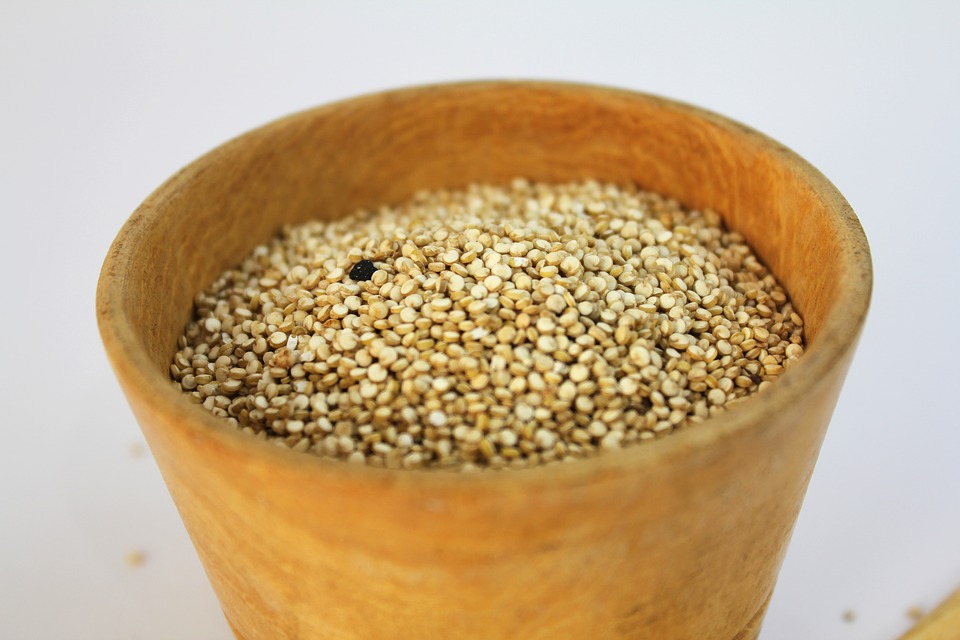Whey protein for breakfast helps diabetics lose weight safely and effectively
02/06/2019 / By Lance D Johnson

The Standard American Diet is like a plague, inflaming muscles and joints, suffocating cellular energy, weakening overall immunity, disrupting hormone levels, constricting blood vessels, and restricting blood glucose regulation. An estimated 9.3 percent of the U.S. population now suffers from a simple metabolic issue called Type 2 diabetes. In most cases, Type 2 diabetes can be cured with simple lifestyle and dietary changes. There are hormones in the gut that can naturally control insulin levels, if they are given the correct instruction from the nutrients we eat.
Many people today readily accept these issues as lifelong health conditions that need perpetual, routine medication, but why would anyone accept a vision of disease acceptance, pharmaceutical dependence, side effects, chronic sickness, decaying health, and the need for a breathing machine, when there are a plethora of ways to reduce inflammation, increase energy, control blood glucose, and manage blood pressure through a healthy lifestyle approach?
A breakfast of whey protein helps regulate insulin levels, blood pressure, and weight
A new study from Israel, published in the Journal of Nutritional Biochemistry, shows that type-2 diabetes can be managed with simple whey protein. Now, not everyone can metabolize whey protein from cows due to lactose intolerance and other dairy allergies; however, there are alternative sources of whey protein that offer similar, if not better benefits. Compared to cow whey, grass-fed goat whey contains more vitamin A and amino acids like linoleic acid and arachidonic acid. Because the fat globules of goat milk are smaller and do not need to be separated, goat whey doesn’t require the homogenization process, making it easier to digest. On the contrary, when cow’s milk is homogenized, a free radical, xanthine oxidase, is released into the milk.
The Israeli study followed 48 overweight and obese adults with type-2 diabetes for 23-month study conducted by the Tel Aviv University. Each participant consumed the same number of calories for breakfast, lunch, and dinner, but was separated into three different breakfast diets. The first group consumed a breakfast containing 49 grams of protein in the form of eggs, soy or tuna. The second group consumed a breakfast high in carbohydrates, with just 17 grams of protein. The final group consumed 49 grams of protein in the form of whey protein.
After just twelve weeks, the whey protein group experienced greater weight loss results, reduced plasma glucose levels, and fewer glucose spikes. The whey protein diet also reduced the hunger hormone ghrelin, making the participants feel more satisfied and less hungry.
A breakfast of whey protein manages Type-2 diabetes because it releases peptides and amino acids into the digestive tract, helping the endocrine system produce hormones that regulate hunger and insulin secretion. These peptides also stop the production of a specific protein in the digestive tract that degrades incretin, allowing for proper insulin production.
On the issue of hypertension, Australian researchers found that whey protein can lower systolic blood pressure by four percent at just 54 grams/day for 12 weeks. On the issue of cellular energy, whey protein is linked to reduced oxidative stress because it increases levels of glutathione in the body. This powerful antioxidant is crucial for cancer prevention and inflammatory bowel disease. On the issue of inflammation, Chinese researchers found that the key markers of inflammation are reduced when participants regularly consume whey protein supplements.
As prescriptions are doled out to mask the real issues that cause high blood pressure and Type-2 diabetes, there are simple dietary answers that can help build the body and the brain in a healthy, strong trajectory.
For more studies on using food to lose weight, read FightObesity.news.
Sources include:
Tagged Under: Amino Acids, blood pressure, diabetes science, digestion, fight obesity, food as medicine, ghrelin, Glutathione, goat whey, hunger, inflammation, insulin secretion, lifestyle changes, metabolic disorder, nutrients, protein, protein supplements, slender, supplements, Type 2 Diabetes, whey protein



















